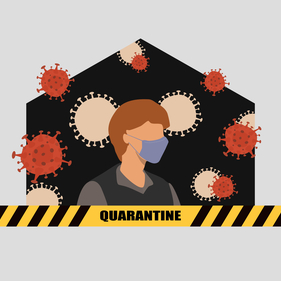D.C. Greatly Expands Eligibility For Unpaid Leave & Unemployment Benefits

The COVID-19 Response Emergency Amendment Act of 2020 was passed on March 17th, 2020, eliminating restrictions on eligibility for unpaid leave under the DC Family Medical Leave Act (FMLA) during periods of quarantine or isolation, and providing unemployment benefits to workers adversely affected by the public health emergency, among other emergency measures effective for 90 days.
The DC FMLA, which applies only to employers with 20 or more employees, provides leave for employees with more than one year of employment and at least 1,000 hours worked in the preceding 12 months. That leave is unpaid, unless the employee chooses to use PTO, or if the employer’s policy requires that they do so. But the Act erases those requirements for a new category of “declaration-of-emergency” (DOE) leave, which applies to any employees who test positive for COVID-19 or who quarantine or isolate themselves by recommendation of a government agency or medical professional, and likely for other COVID-19 reasons as well. This DOE leave is available for the entire duration of a public health emergency while quarantine and isolation are recommended.
Also under the Act, Unemployment Insurance will become available to “affected employees” for the duration of the public health emergency—regardless of whether a date for returning to work has been established, or not—in the following categories:
- Employees whose employers have closed or reduced operations pursuant to a government recommendation or experienced a reduction in business as a result of a public health emergency, such as present one;
- Employees quarantined or isolated by order of a government agency;
- Employees who are self-quarantining or self-isolating, as according to guidance from a government agency;
- Employees who elect to leave work after their employer fails to heed a government directive to close.
Beyond those expansions, the Act removes the standard one-week waiting period for Unemployment Insurance and does not require that recipients actively search for new work. For employers, unemployment paid out under these circumstances will not be charged against their experience rating.
All of these expansions are effective immediately—and they could affect decisions of employees torn between public health recommendations and the threat of losing wages or benefits. Employers also need to take note of the expanded DOE leave, which will apply broadly to their affected workers.
If you have questions regarding how to handle employment, staffing, or leave issues during the current spread of the Coronavirus, please contact the employment attorneys at Paley Rothman.
